Grading Bowman's Blackhawks tenure: Does he deserve to oversee rebuild?
Two months after the Chicago Blackhawks committed to a rebuild, the team promoted Stan Bowman on Wednesday, giving him the title of president of hockey operations in addition to his general manager responsibilities.
Bowman is now his own boss, which means he'll remain in charge of the Blackhawks as the team undergoes a critical transformation.
Bowman is a polarizing figure in The Windy City. Though he didn't lay the foundation for Chicago's dynasty (that credit belongs to Dale Tallon) he oversaw all three Stanley Cups (2010, 2013, 2015) following his promotion to GM in July 2009.
However, the team has sputtered the past few seasons, finishing last in the Central Division two of the last three years. Up until the formal announcement of a rebuild, the club seemed to constantly teeter between a youth infusion and trying to win one last Cup with the old core.
Below, we'll grade the job Bowman's done in five categories (drafting, trading, free agency, cap management, and overall vision) before coming to a conclusion on whether he's fit to lead the team in its rebuild.
Drafting
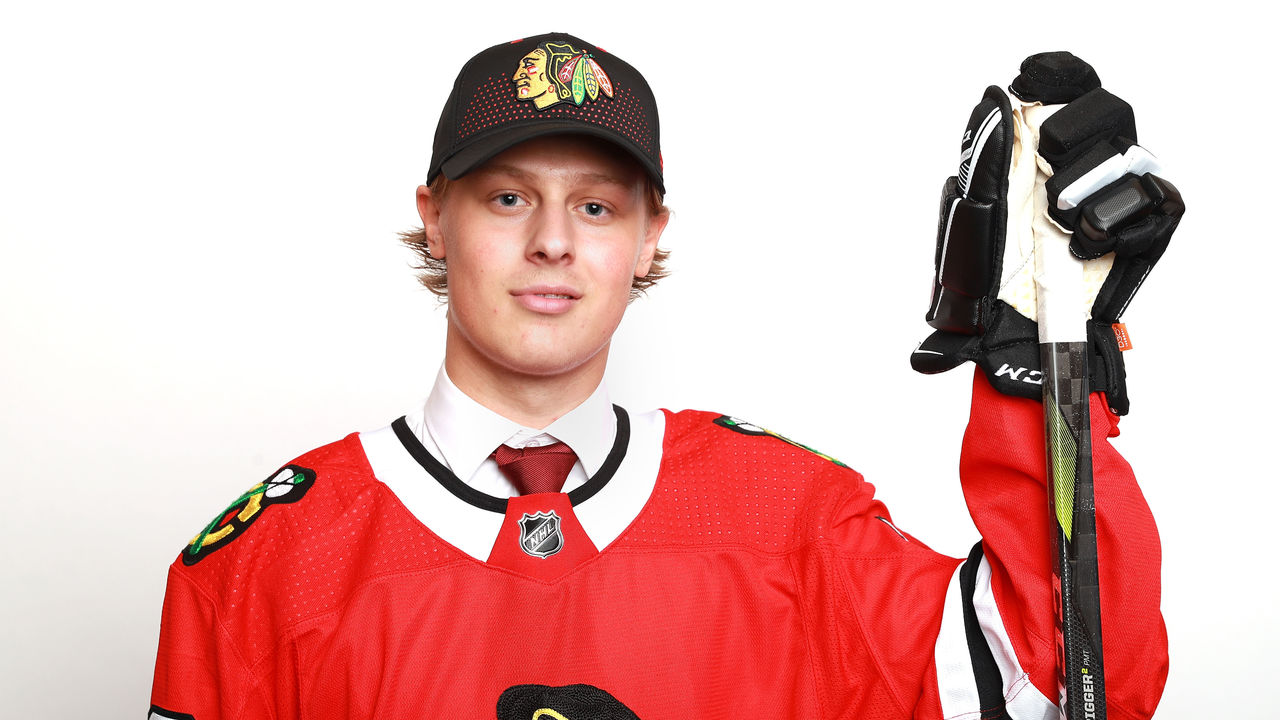
This is where the 47-year-old executive has excelled. The Blackhawks made their first-round selections count despite going eight straight years without a top-15 pick. Even though some of the draftees found their primary success with other teams, Bowman's eye for young talent can't be denied. Here's a list of players he's picked in Round 1:
| Year | Pick | Player |
|---|---|---|
| 2010 | 24 | Kevin Hayes |
| 2011 | 18 | Mark McNeill |
| 2011 | 26 | Phillip Danault |
| 2012 | 18 | Teuvo Teravainen |
| 2013 | 30 | Ryan Hartman |
| 2014 | 20 | Nick Schmaltz |
| 2017 | 29 | Henri Jokiharju |
| 2018 | 8 | Adam Boqvist |
| 2019 | 3 | Kirby Dach |
| 2020 | 17 | Lukas Reichel |
McNeill is the only blemish on this impressive list. Boqvist and Dach have flashed early signs of being future stars.
Bowman hasn't found many recent hidden gems outside of the first round, though. He drafted Brandon Saad (second round) and Andrew Shaw (fifth round) in 2011, but he's only found four NHL regulars after the first round since then. Three of them (Vinnie Hinostroza, John Hayden, and Tyler Motte) are just depth players, but Alex DeBrincat (second round, 2016) is a star.
Grade: A
Trading
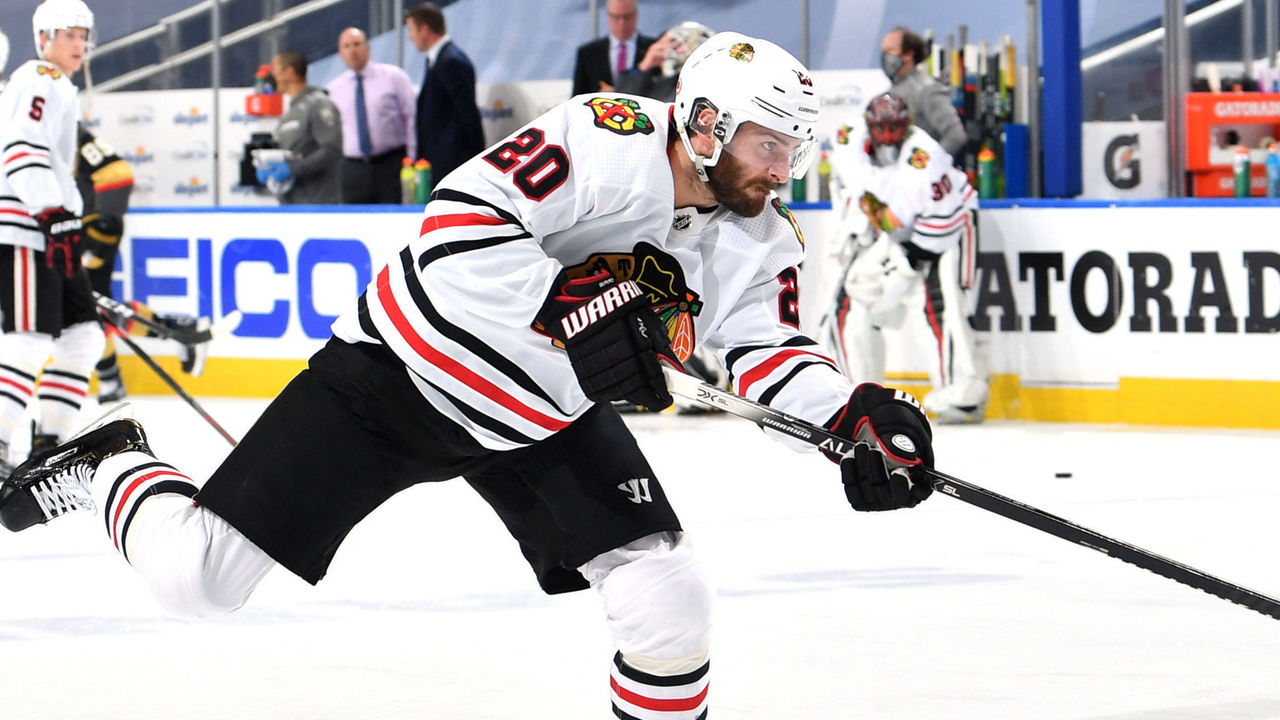
Bowman's trade resume is a mixed bag. He made some shrewd moves early in his tenure to help Chicago win Cups. Plenty of his trades were salary dumps, though, because the Blackhawks were up against the cap. Here are his best swaps:
| Date | Primary acquisition | Primary departure |
|---|---|---|
| February 2010 | Nick Leddy | Cam Barker (to MIN) |
| February 2012 | Johnny Oduya | 2nd-round pick (to WPG) |
| January 2019 | Dominik Kubalik | 5th-round pick (to LA) |
Bowman got Leddy and Oduya, important pieces to those Cup-winning teams, without sacrificing much at all. Kubalik was a Calder Trophy finalist this past season.
However, Bowman's list of bad trades is longer, with the majority of them coming in the last few years:
| Date | Primary acquisition | Primary departure |
|---|---|---|
| October 2014 | Ville Pokka | Nick Leddy (to NYI) |
| February 2016 | Dale Weise | Phillip Danault (to MTL) |
| June 2016 | 2nd-round pick | Teuvo Teravainen (to CAR) |
| June 2017 | Brandon Saad | Artemi Panarin (to CLB) |
| October 2020 | Brad Morrison | Olli Maatta (to LA) |
| October 2020 | Nikita Zadorov | Brandon Saad (to COL) |
As always, context is key. Leddy was due for a modest raise and Bowman took a chance by replacing him with Pokka, a prospect who didn't pan out. Danault hadn't done much in Chicago and seemed to benefit from the change of scenery. Teravainen was a sweetener for the Carolina Hurricanes so they would take on Bryan Bickell's contract.
Other deals, though, were head-scratchers. In an effort to extend the Blackhawks' Stanley Cup window, Bowman ended up sealing it for good by dealing Panarin, who had two years left on his contract at the time, in exchange for Saad, who had four.
Though the GM made moves this offseason to clear cap space, Bowman still had to eat half of Maatta's cap hit while receiving only an ECHLer a year after giving up Dominik Kahun for the defenseman. And the return for a valuable asset in Saad was underwhelming, to say the least.
Bowman probably would've graded out as a B here after his first six years on the job, but the five years since have mostly been a failure.
Grade: D+
Free agency
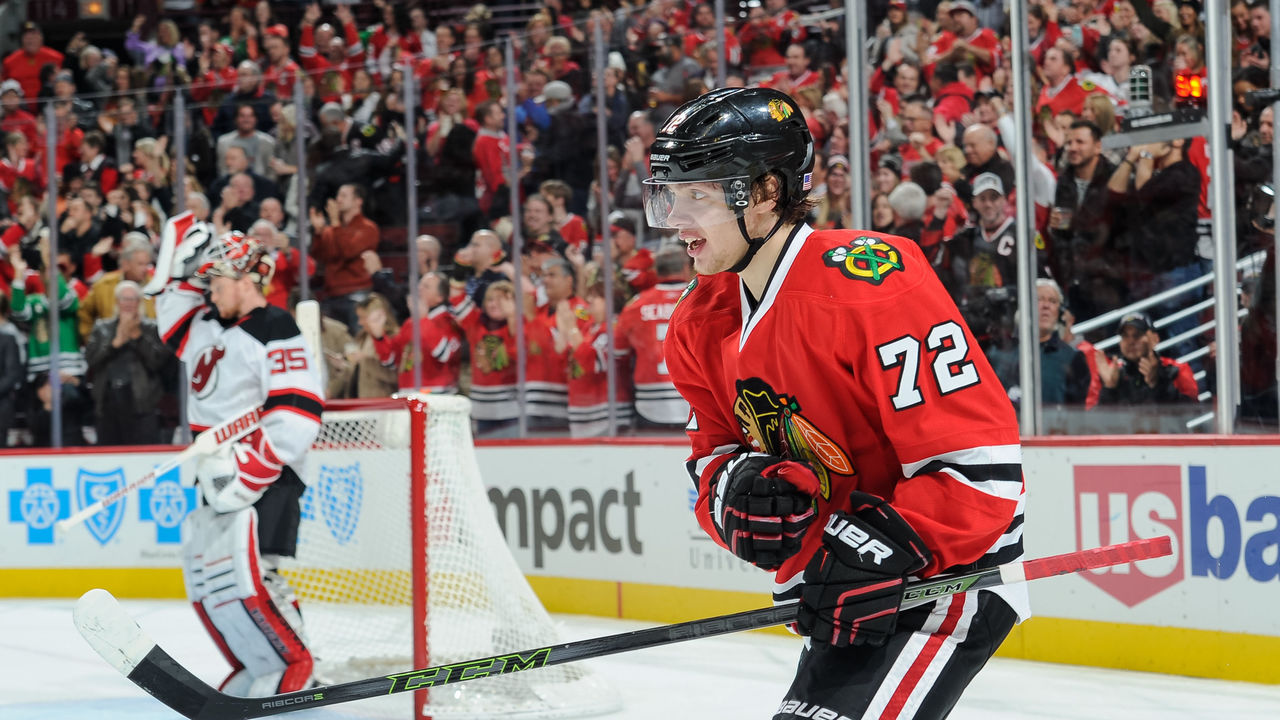
Due to cap constraints, Bowman hasn't been overly active in free agency during his tenure. Here's a look at his most notable signings, both good and bad (this only includes acquisitions, not re-signings):
| Year | Player | Length | AAV |
|---|---|---|---|
| 2011 | Steve Montador* | 4 years | $2.75M |
| 2012 | Michal Rozsival | 1 year | $2M |
| 2014 | Brad Richards | 1 year | $2M |
| 2015 | Artem Anisimov* | 5 years | $4.55M |
| 2015 | Artemi Panarin | 2 years | $818K |
| 2018 | Cam Ward | 1 year | $3M |
| 2018 | Brandon Manning | 2 years | $2.25M |
| 2019 | Robin Lehner | 1 year | $5M |
| 2020 | Mattias Janmark | 1 year | $2.25M |
*Acquired players' rights just before signing
Though he's not included on this list, Bowman was promoted to GM two weeks after the Blackhawks signed Marian Hossa to a 12-year, $62.8-million deal.
Plucking Panarin out of Russia was extremely savvy, but otherwise, Bowman hasn't made any impactful free-agent additions (even though Lehner netted him a second-round pick). He gets credit for not making any overly egregious signings, though.
Grade: B-
Cap management
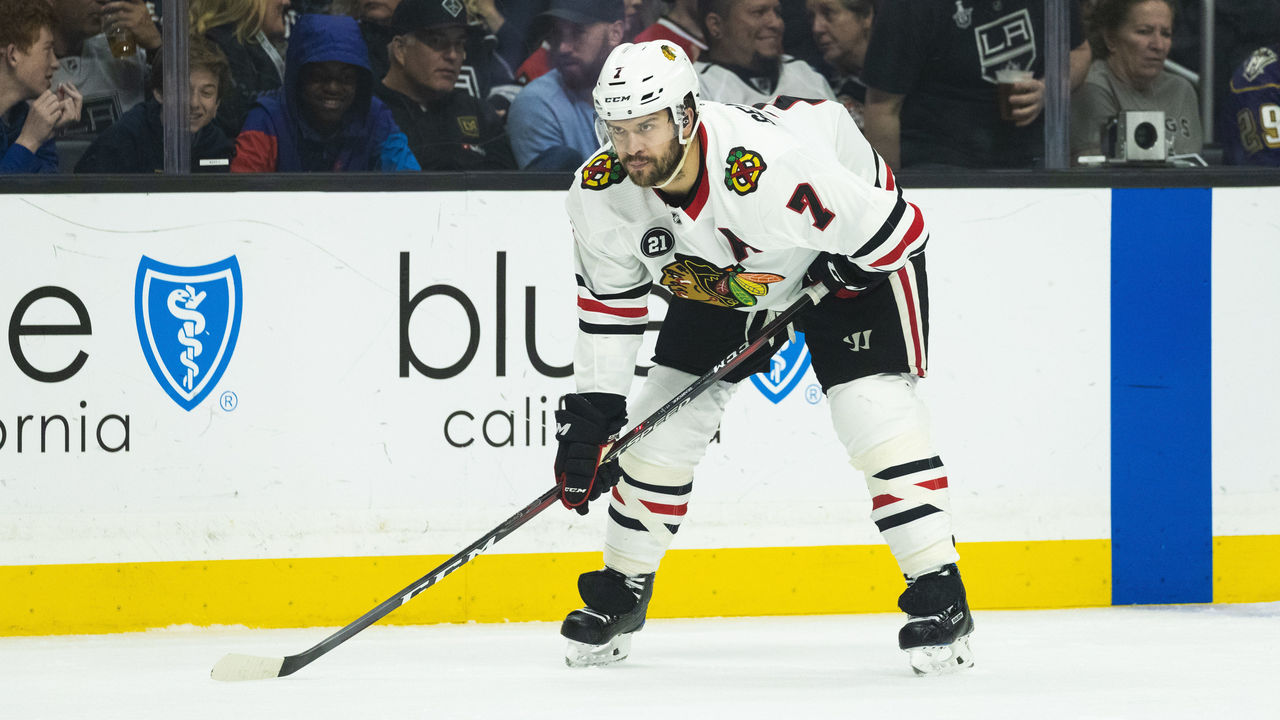
Bowman did an excellent job maintaining the club's core during the Stanley Cup years while adding depth pieces, but his work managing the cap has declined since then.
His first three signings on the job (Jonathan Toews and Patrick Kane's matching five-year, $31.5-million contracts, along with Duncan Keith's 13-year, $72-million pact) were all superb. And while Toews and Kane's second pair of matching contracts (eight years, $84 million) has limited the team's flexibility in recent years, Bowman had to make those deals.
He signed Niklas Hjalmarsson to team-friendly contracts (four years, $14 million in 2010 and five years, $20.5 million in 2013). Corey Crawford's six-year, $36-million deal in 2013 was fair value, too.
However, one awful contract can cripple an organization in a hard-cap league, and the eight-year, $55-million agreement Bowman handed to Brent Seabrook in 2015 has done just that. Seabrook's contract, which has four years remaining at a $6.875-million cap hit, is arguably the worst in the league. Hindsight is 20/20, but signing a 30-year-old defenseman lacking foot speed to an eight-year deal had disaster written all over it.
If Bowman had let Seabrook walk, he may have been able to hold onto Panarin, Teravainen, and potentially others. Knowing when to let go is a critical part of being a good GM.
And while they're more minor, debacles such as trading for Maatta, only to eat half his salary a year later, is the definition of poor cap management.
Bowman would've graded out with an A following his early years on the job, but it's been all downhill as of late.
Grade: C
Vision
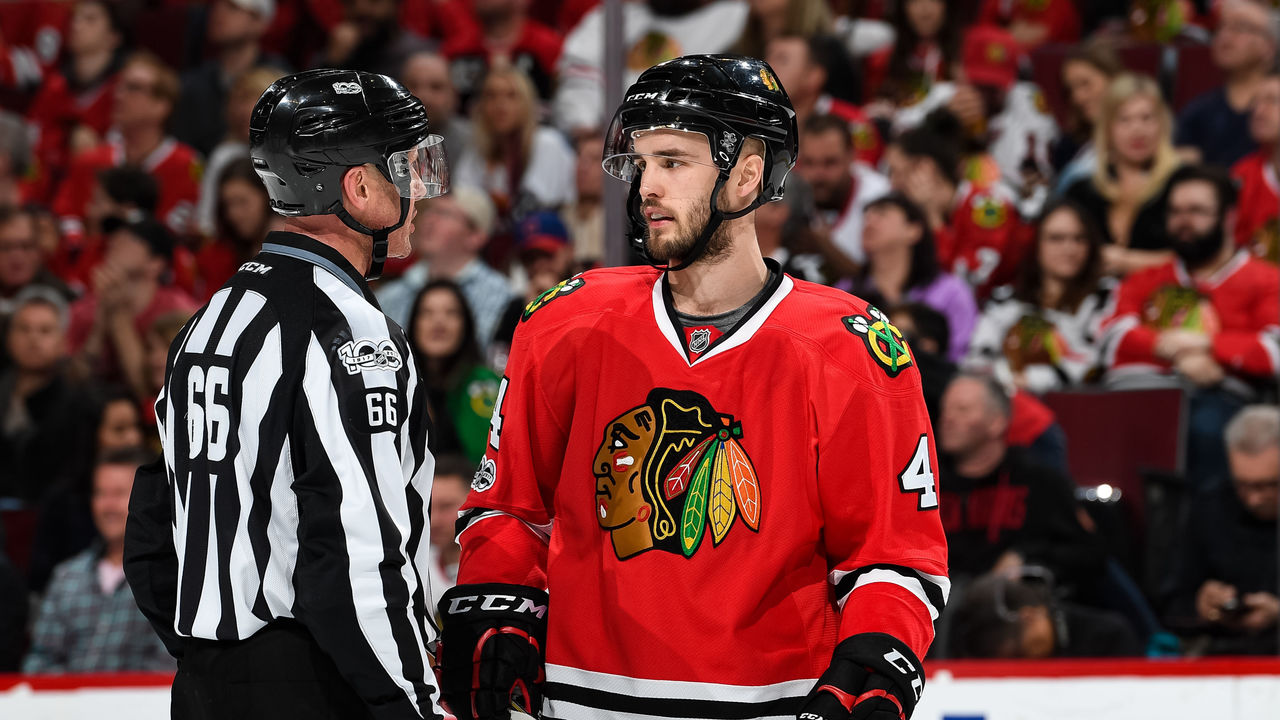
This is much more difficult to quantify. Bowman's vision was obvious in his early years: keep the core together and win as many Stanley Cups as possible. He did exactly that without mortgaging too much of the future.
Bowman's vision has been foggy in recent years, though. Following a second straight first-round playoff exit in 2017, the GM decided to shake things up despite a conference-best 109-point regular season.
He traded Panarin that offseason. Bowman also shipped Hjalmarsson to the Arizona Coyotes for Connor Murphy. The Hjalmarsson deal has panned out better for Chicago than expected because he's 33 now and has lots of mileage, while Murphy, 27, is coming off his best season.
However, it took a few years for Murphy to find his footing, and Hjalmarsson - who was more integral to the team's last two Stanley Cups than Seabrook - remained elite defensively up until this season. Had Bowman hung on to Panarin and Hjalmarsson, the Blackhawks could've remained a contender in 2017-18. Instead, Chicago has the league's fifth-worst points percentage since that deal.
That's where vision comes into play. Bowman tried to contend and retool on the fly, and he failed.
The vision is clear now, but a legitimate rebuild probably should've started a year ago. Instead, Bowman signed Lehner. Netting a second-round pick out of that is great, but that signing signaled the Blackhawks were still trying to compete. Without Lehner's 33 games, the team would've finished lower in the standings and probably missed the expanded postseason, which would've guaranteed Chicago a better draft pick.
It's best to go all-in or all-out, but Bowman was stuck in the middle for three years.
Grade: C-
Verdict
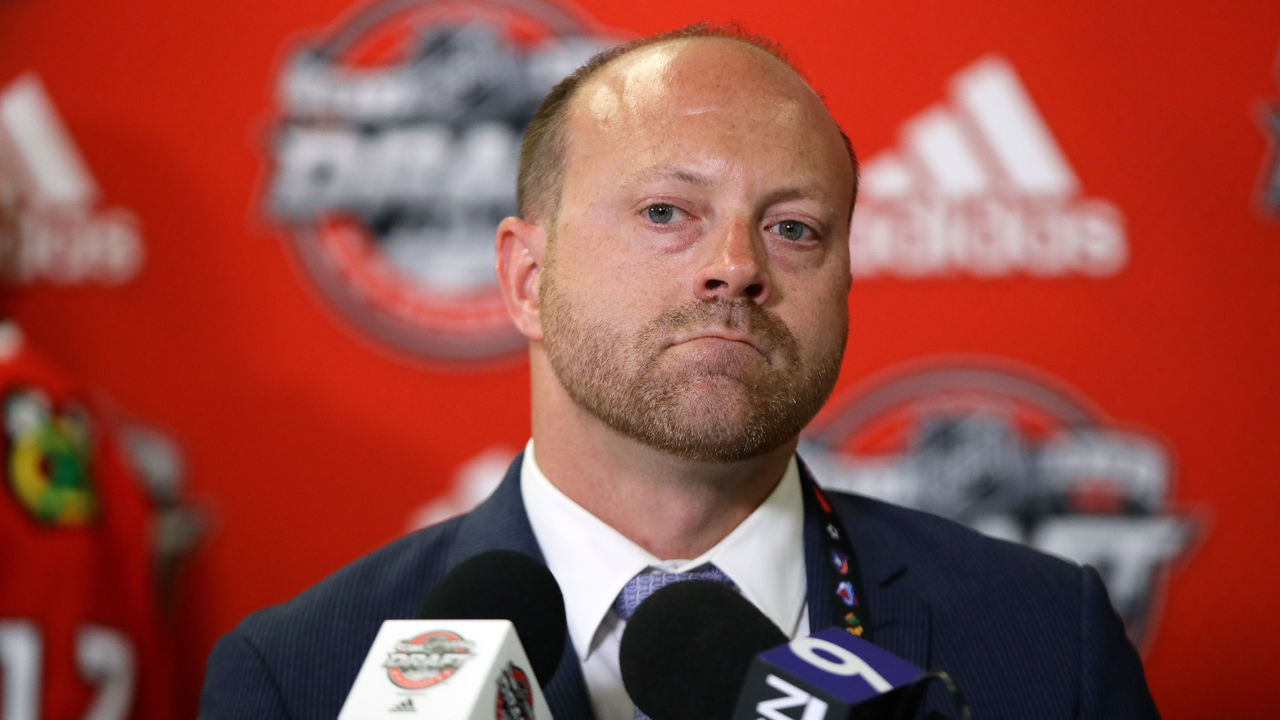
Bowman was once rightly regarded as one of the league's top executives. However, fans have soured on him over the last few years. The Blackhawks finished 30th in a recent front-office confidence poll conducted by The Athletic.
Given the excellent work he did during the first half of his tenure, some of the criticism is unfair. Bowman will probably be revered in Chicago once his time is all said and done. However, as of now, the latter half of his term will be defined by two moves: the Seabrook contract and trading Panarin.
Can Bowman be trusted to not make similar mistakes going forward? Given that he doubled down on the Panarin trade a year later, we're not so sure. It's also concerning when the team's core is fed up with the GM and seemingly left in the dark about the club's direction.
The Blackhawks will have big decisions to make in the coming years. Boqvist's and Dach's entry-level contracts expire after 2022. Toews, Kane, and Keith all come off the books after 2023.
This is a "what have you done for me lately" type of business, and Bowman has made mostly poor decisions over the last few years. Chicago would've benefited from bringing in an outside mind to objectively assess the team's current situation. That could've meant hiring a separate president of hockey operations to oversee Bowman as GM, or parting with him altogether.
Despite all the great things he's done, extending Bowman's leash - and giving him more power - during a critical time for the franchise could prove to be a fatal mistake.
(Contract source: CapFriendly)